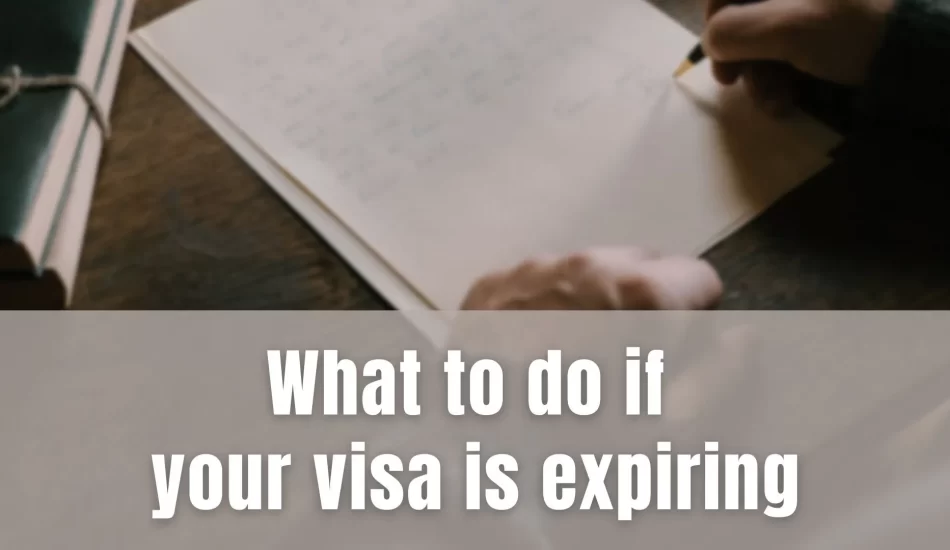Extend Your Visa During COVID-19 Crisis

The COVID-19 pandemic has brought unprecedented changes and uncertainty to most areas of life over the past several years. For individuals without secure immigration status, this is an exceptionally difficult and confusing time.
USCIS field offices have closed their doors to in-person appointments, US embassies and consulates abroad have been shut down, and thousands of people have found themselves unable to return home to the United States or leave the United States to return to their home country.
With all of these changes, it is hard to know when things will return to normal and how your immigration status or pending application will be affected. It is more important than ever to stay informed and to take the necessary steps to maintain legal status.
Application to Extend/Change Nonimmigrant Status with USCIS
Certain nonimmigrants with temporary statuses in the United States should seriously consider filing to extend or change their nonimmigrant status to avoid going out-of-status and accruing unlawful presence. Overstaying a nonimmigrant visa can lead to a ban on entry to the United States in the future. To avoid this, nonimmigrant workers, students, and visitors who have been affected by COVID-19 should consider filing Form I-539, Application to Extend/Change Nonimmigrant Status with USCIS.
Form I-539 can be filed by the following individuals:
- certain nonimmigrants extending their stay or changing to another nonimmigrant status;
- CNMI residents applying for an initial grant of status;
- F and M nonimmigrants applying for reinstatement; and
- persons seeking V nonimmigrant status or an extension of stay as a V nonimmigrant.
Generally Section 214 of the Immigration & Nationality Act and its corresponding rules (i.e. 8 CFR § 214.1[c]), permit an individual with a pending I-539 or I-129 to stay in the US legally while USCIS adjudicates the application, pursuant to the particular conditions of their visa, if it was filed before the expiration of their status. So, it is important that action be taken quickly.
Expired Visas under Circumstances beyond Control
When a person’s visa status has already expired, and their failure to depart was due to COVID-19, they may have an option to recover their status. The current rules state that USCIS may accept and approve an I-539 or I-129 which was filed after the individual’s status expired, if it happened because of extraordinary circumstances beyond their control. USCIS has granted that this exception may be applied to those impacted by the coronavirus pandemic.
Nonimmigrant Arrival-Departure Record
All I-539 applicants must include a copy of their Form I-94 Nonimmigrant Arrival-Departure Record as evidence of their most recent entry and visa class. All other requirements depend on which type of nonimmigrant status you currently hold (if extending your status) and to which status you are hoping to change (if changing status).
The I-94 form indicates how long a period of stay is authorized. You may apply to extend your stay beyond this date as long as:
- you were lawfully admitted into the United States with a nonimmigrant visa;
- your nonimmigrant visa status remains valid;
- you have not committed any crimes that make you ineligible for a visa;
- you have not violated the conditions of your admission; and
- your passport is valid and will remain valid for the duration of your stay.
Those eligible should file this application 45 days before their status expires and should request the maximum period of authorized stay. If applying late, applicants should specify and explain the extraordinary circumstances that caused the delay in filing. Specifically, this would include challenges created due to the Coronavirus in the United States, as well as travel restrictions for returning to the home country as a result of the widespread outbreak.
ESTA-Visa Waiver Status
In the United States, some visitors have a status that can be neither extended nor changed, for example, people who entered on an ESTA/Visa Waiver Program. The law only provides a limited exception for these individuals. 8 CFR §217.3(a) provides that if “an emergency prevents an [individual] admitted from departing from the United States within his or her period of authorized stay, the district director having jurisdiction over the place of temporary stay may, in his or her discretion, grant a period of satisfactory departure not to exceed 30 days.” USCIS has stated that they may exercise their discretion and issue additional periods of stay for those with an ESTA entry and has directed them to request satisfactory departure from USCIS, through the USCIS Contact Center.
Speak with an Immigration Lawyer
Depending on your visa classification, changing or extending your status may or may not be an option. The most important thing to keep in mind is that USCIS still has the right to penalize those who overstay or violate the conditions of their visa, despite the ongoing health crisis. In order to avoid big issues later on, it is extremely important to consider all of your options and speak with your immigration attorney if you are at risk of losing status due to COVID-19.
If you or anyone you know would like assistance applying for an immigration extension of stay, change of status application, or any other immigration benefit, Passage Immigration Law can help, with offices in Portland, Oregon, Los Angeles, California, and Seattle, Washington. Call to schedule an appointment today at (503) 427-8243 or you may schedule a consultation online. We continue assisting clients via telephone, email, and video conference during the COVID-19 crisis.
